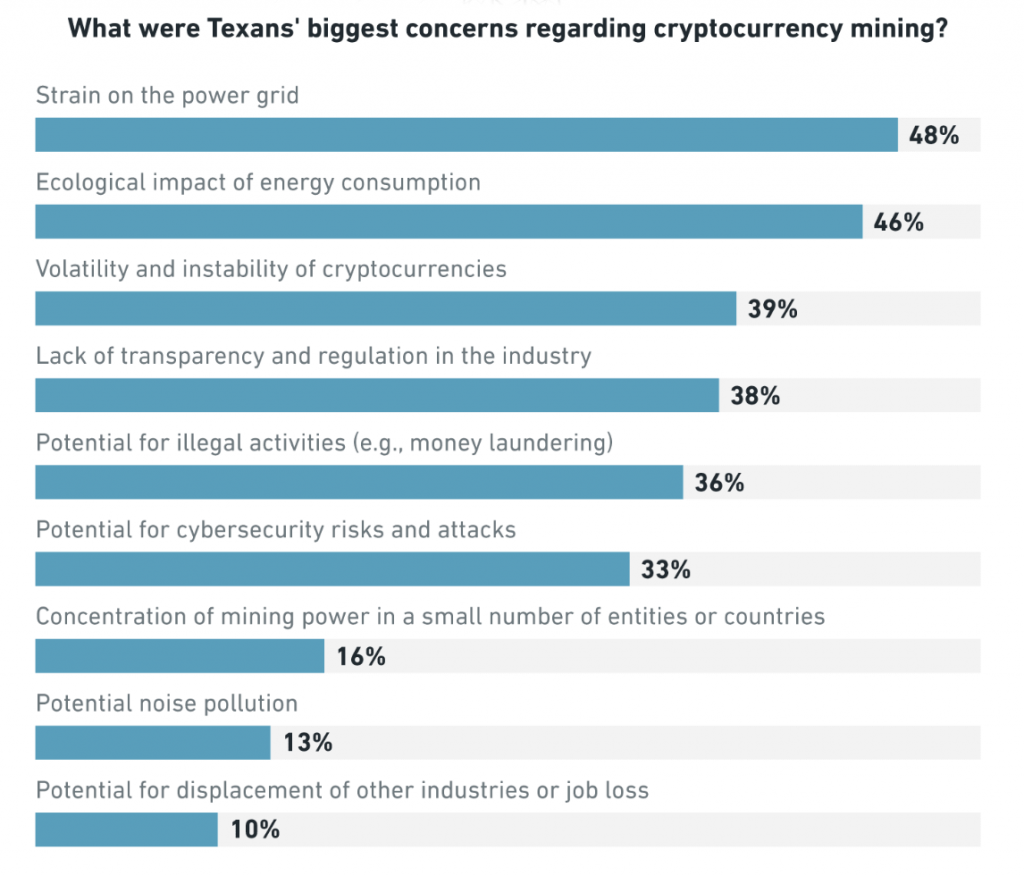Mining Crypto Disturbs Texans and Ruins Power Grid in the State
It is a known fact that crypto mining takes enormous amounts of electricity and produces a lot of emissions. Some reports say that electricity costs for Bitcoin mining are comparable to the costs of electricity consumption of entire countries, and carbon dioxide and heat emissions exceed even those of companies like American Airlines Group Inc.
With ever expanding mining, there is a growing concern among Texans about its negative impact on the vulnerable power grid.
A new survey conducted by Payless Power, an energy company based in Dallas, shows that more and more Texans are exposed to negative effects of crypto mining.
According to the survey, 70% of respondents are greatly concerned about the mines’ impact on the power grid, while more than half of them wonder how the state authorities are handling the ever-growing mining industry. The majority of people in the survey believe that the states and federal governments should regulate the mining industry and even limit various bonuses that miners get for moving their businesses to Texas. Some survey members suggest that crypto miners should participate in the grid-balancing program.
Among the survey respondents, 10% of Texans live near crypto mines, while 21% of them have been involved in mining crypto personally, mostly Bitcoin (62%) and Etherium (43%).
While almost 25% of respondents are worried about noise pollution, a lot of Texans are also concerned about increasing electricity bills. Overall, those who mined crypto noticed their bills increased by $40 per month.
Among other concerns mentioned by Texans are potential for illegal activity, such as money laundering (36% of participants), possible risks for cybersecurity (33%), and displacement of other industries and possibility of job loss (10%).

Payless Power has surveyed 727 Texans, 52% of them were women, 46% — men, and 2% defined themselves as nonbinary.



